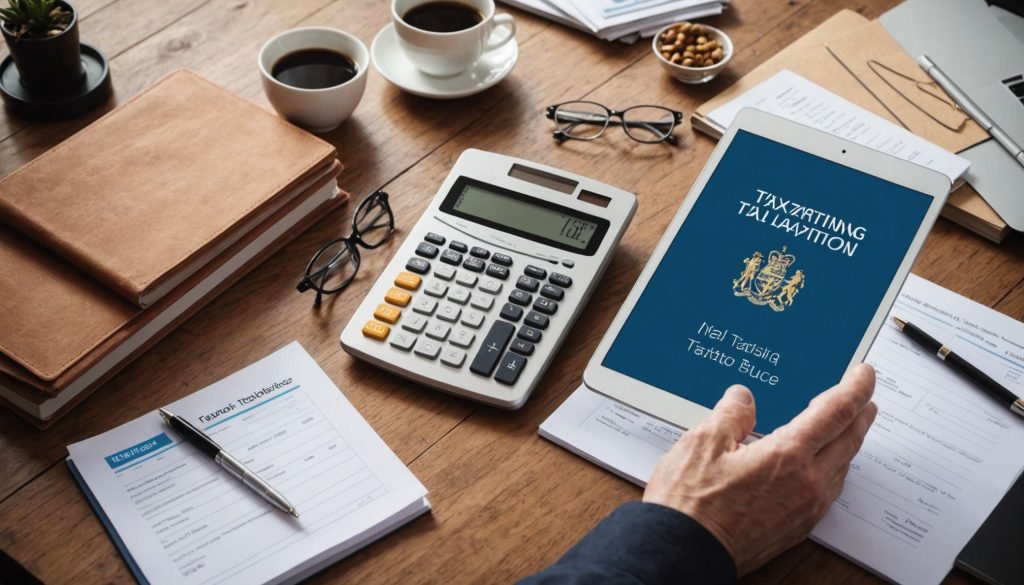The Ultimate Real Estate Checklist for Buyers
Embarking on the journey to purchase a home is both exhilarating and complex. Having a comprehensive checklist can transform this process from overwhelming to manageable. To streamline your home buying experience, consider this ultimate guide filled with home buying essentials, practical advice, and strategic smart homebuyer tips. By following a well-structured property purchase checklist, you’ll be well-equipped to navigate the real estate landscape with confidence.
Define Your Budget
The cornerstone of any real estate buyer guide is understanding your budget. Before you begin house hunting, assess your financial situation, including savings, income, and current debt. Determine how much you can afford for a down payment and monthly mortgage payments. It’s also wise to get pre-approved for a mortgage to know exactly how much you can borrow. This step ensures you focus on properties within your financial range, saving time and avoiding potential disappointments.
Identify Your Needs and Wants
Next on the property purchase checklist is defining your needs and wants in a home. Consider essential factors such as the number of bedrooms and bathrooms, proximity to work or school, and desired neighborhood amenities. Create a list of non-negotiables and nice-to-haves to help narrow down your search. Prioritizing these criteria will help you stay focused and make more informed decisions as you explore potential properties.
Research Neighborhoods
The neighborhood you choose can be as important as the home itself. Research various neighborhoods to find one that aligns with your lifestyle and preferences. Look into factors such as school quality, crime rates, public transportation, and local amenities like parks and shopping centers. Understanding the dynamics of potential neighborhoods will help you select an area where you’ll feel comfortable and satisfied for years to come.
Evaluate Property Condition
When touring homes, closely evaluate their condition. Inspect the foundation, roof, plumbing, and electrical systems to ensure they are in good working order. Pay attention to signs of water damage, mold, or structural issues that could signal costly repairs. A thorough inspection can reveal potential problems that might affect your decision or negotiation strategy.
Assess Market Conditions
Understanding current market conditions is crucial when buying real estate. Analyze trends such as average home prices, inventory levels, and how long properties stay on the market. This insight will help you gauge whether a property is fairly priced and whether it’s a buyer’s or seller’s market. Knowledge of market conditions can also aid in making competitive offers and timing your purchase effectively.
Review the Home’s History
Investigate the history of any property you’re interested in. Check for past sales, price fluctuations, and any recent renovations or repairs. Review the property’s disclosure statement, which should outline any known issues or past problems. This information provides a clearer picture of the home’s condition and its value over time.
Understand the Purchase Agreement
Before finalizing any purchase, thoroughly review the purchase agreement. This legal document outlines the terms and conditions of the sale, including price, contingencies, and closing details. Ensure you understand all aspects of the agreement and consult with a real estate attorney if needed. Clarity on these terms is essential to avoid misunderstandings and ensure a smooth transaction.
Plan for Closing Costs
Beyond the down payment, be prepared for additional expenses associated with closing. Closing costs can include fees for appraisals, inspections, title insurance, and legal services. Typically, these costs range from 2% to 5% of the home’s purchase price. Budgeting for these expenses in advance will prevent surprises and ensure you have sufficient funds for a successful closing.
Conduct a Final Walkthrough
A final walkthrough of the property before closing is an important step. This allows you to ensure that any agreed-upon repairs have been completed and that the home is in the condition expected. Verify that all systems and appliances are functioning correctly and that no new issues have arisen since your last visit. This final check helps confirm that you’re receiving what you’ve agreed to and provides peace of mind.
Finalize Your Financing
Before closing, finalize your mortgage financing. Ensure that all necessary paperwork is complete and that your lender has approved the loan. Review your mortgage terms, including interest rates and repayment schedules, to confirm they align with your financial plans. Completing this step ensures that you’re fully prepared for the closing process.
Conclusion: Your Path to Success
Purchasing a home involves numerous steps, but adhering to a thorough property purchase checklist can simplify the process. By focusing on home buying essentials and utilizing a real estate buyer guide, you’ll navigate each phase with greater ease. From setting your budget and researching neighborhoods to finalizing your financing and understanding the purchase agreement, each element is crucial for a successful homebuying experience. Implement these smart homebuyer tips to ensure a smooth, informed, and confident journey toward securing your new home.





